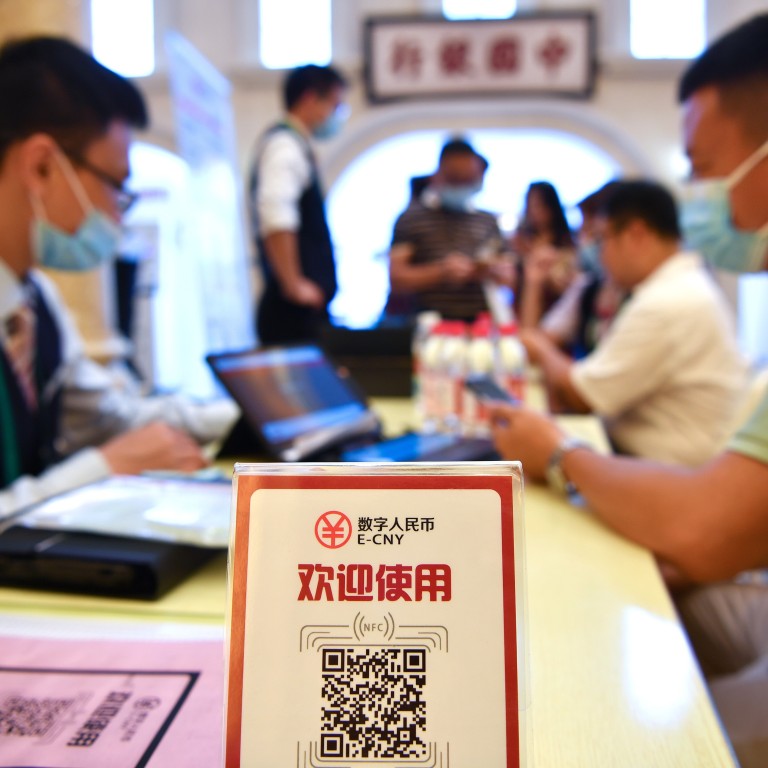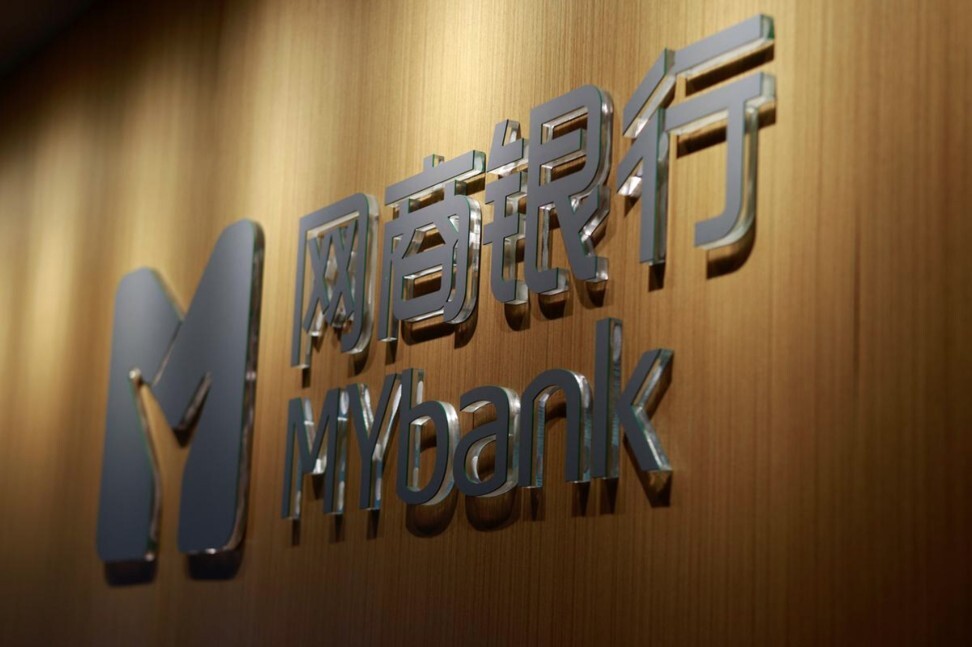
Fintech giant Ant Group’s MYbank joins China’s digital yuan platform
- MYbank is the first online lender to join a group of major financial institutions that have set up e-wallets on China’s digital yuan app
- The participation of these banks shows how China is bolstering efforts to lead major economies in developing a central bank digital currency
Users are now able to open an account associated with MYBank, but its top-up function has not yet been activated because it was “still being developed”, according to the app.

“Ant Group associate MYbank will steadily advance the [digital yuan] trial pursuant to the overall arrangement of the People’s Bank of China,” said an Ant representative in a statement. “Ant Group, together with MYbank, will also continue to support the research, development and trial of the PBOC’s e-CNY.”
WeBank declined to comment.
The roster of financial institutions that have joined the PBOC-developed app shows how China is bolstering efforts to lead major economies in developing a central bank digital currency, also known as Digital Currency Electronic Payment (DCEP) system, after expanding tests in April this year into more regions.
Ant Group shows off its work on China’s digital currency for the first time
The e-yuan function is also currently available on Ant’s mobile payment app Alipay for a certain group of users, according to a recent report by Shanghai Securities News.
That arrangement could further help grow digital yuan users across the country, where Alipay has roughly 700 million monthly active users – a customer base that is connected to 80 million merchants and more than 2,000 financial institutions.
“WeChat Pay and Alipay are wallets, while the digital yuan is the money in the wallet,” Mu said.
Shanghai, Hainan added to e-yuan trials as China inches towards launch
Despite the PBOC’s recent efforts, convincing local consumers to use the digital yuan app for daily transactions could take more time.
Julia Chu, a 30-year-old saleswoman in Beijing, downloaded the PBOC app to get a 200 yuan (US$37) digital cash gift during a lottery draw in February, when the electronic currency was tested in Beijing. After spending that amount on food, Chu said she has not used the app since.
“The app was convenient and smooth, but it was not as convenient as Alipay or WeChat Pay in daily use,” she said. “One has to top-up the digital wallet and then pay. By comparison, payment via Alipay or WeChat Pay is just one step with the bank card associated with the account.”
“I may go back to the digital yuan wallet if there is a discount or coupon,” she said.

